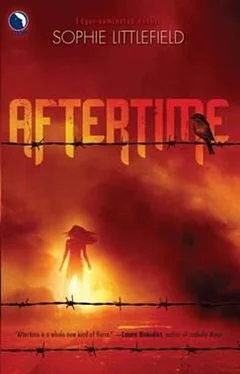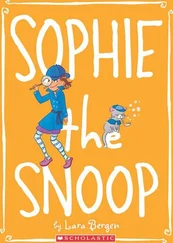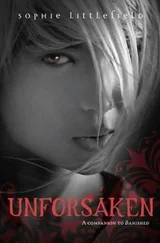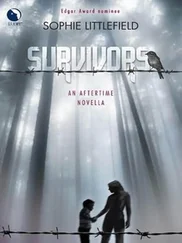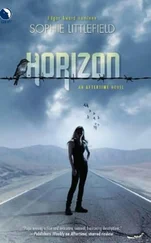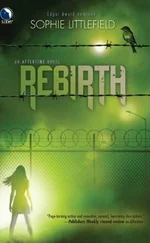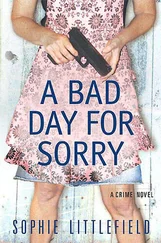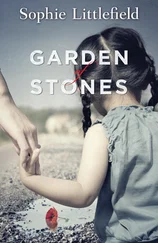Cass thought of Evangeline, her cruel eyes and ruthless smile. “They’ll just keep coming, though.”
“That’s right. That’s right. That crew’s relentless. They ain’t giving up, that’s for sure.” He picked up a well-tended, clean pair of shears. “So, this was a do-it-yourself job? No problem, I’m getting pretty good at cleaning those up.”
Cass flinched with the first cut, but after that it went smoothly, as the shears found a rhythm. Vinson hummed, a tune familiar but also not, wandering up and down a minor scale. Cass closed her eyes and let drowsiness take her over. When she felt his hands in her hair, brushing out the stray cut pieces, she sighed with the pleasure of a moment of luxury.
“How about I throw in a little extra service? I don’t exactly have customers lined up, and it’s been a while since I got to try anything fun.”
“What was it you used to do?” Cass asked, as he picked up a plastic tub of boxes and bottles that had been stowed beneath the table.
“Tattoos, mostly, and piercing. But don’t worry, I’m trained for hair, too. Went to school and all, cut hair in a Supercuts before I got my shop.”
Cass put her fingers to her hair. It was short and silky against her fingertips, longer in the back than near the front, where the new growth blended in. No one would know that she had pulled her own hair from her scalp, that a scant month or two ago she had been fevered and frantic. Touching her hair, Cass realized that for the first time she was able to swallow back the thought without it nearly killing her.
“Yes,” she said softly. “Do it.”
An hour later she smelled faintly of ammonia and her soft brown roots faded to white at the tips. Vinson waved away her promises to make sure he was paid. “I’ll see Smoke tonight, I’ll get him to buy me a drink and we’ll call it square.”
She didn’t tell him that she’d be gone by then.
She searched for Smoke up and down the rows. A few daytime drunks lay passed out here and there, but guards rousted those in the neat paths and shuffled them off to the area where Cass had found Gloria earlier. Cass figured that a cot there was part of the deal for the most hardcore drinkers, the ones who wouldn’t spend money on a tent when it could instead feed their addiction. Or-more likely-maybe even these mean accommodations came with a price, and those who couldn’t pay were tossed out at night. She averted her eyes from the bodies lying on the cots, limbs splayed over the edges, and wondered what kind of man Dor must be to send people back out to fend for themselves just because they couldn’t afford a cot.
She didn’t find Smoke near the front, where a handful of travelers were checking in with George, going through the ritual of laying out their possessions on the table. She searched the stalls, ignoring the vendors calling out offers of underwear, socks, sweaters, grooming products, packaged food. When she couldn’t find Smoke anywhere in the camp she steeled herself and ducked through a space in the rows to where a makeshift bar gathered a variety of people standing and sitting on plastic chairs. They nursed drinks from mugs and plastic cups and smoked down expertly rolled joints. In nooks created by blankets hung from poles, she saw people shooting up or huddled over pipes. But still no Smoke.
The sun had begun to descend in the sky, and Cass was starting to get nervous. Gloria had advised her to go before the evening meal, while the deacons responsible for reviewing candidates for the Order would still be assembled. Evenings were devoted to prayer and silence, as were mornings; conversation was allowed only between the morning and evening meals.
She considered asking around to see if anyone had seen Smoke; so many people seemed to know about what he’d done, how he’d fought the Rebuilders. But the mortification of having been caught the night before stopped her. There was no way to know who had heard them and who hadn’t.
Still, she had searched nearly everywhere…everywhere but the line of blue tents, and she stared at them for long moments, trying to decide. A few had their flaps tied back, flashes of a bare leg or braceleted wrists visible from the depths where women waited for customers, but most of the tents were closed, their occupants busy inside. Gloria was in one of them, Cass guessed, since she hadn’t spotted her anywhere else. The thought pained her, and she wished she’d had something more to give Gloria, but she knew it wouldn’t make any difference. Cass was not in a position to judge, and never would be again.
She turned away. There was only one other place she hadn’t looked, a construction trailer mounted on blocks near the edge of the Box that backed up against the stadium. Its windows were shaded by miniblinds, and a guard sat in a chair out front. Cass had no doubt that this was where Dor kept his office. It was the only place left that she hadn’t looked. She deliberated for only a moment before heading for the trailer-she could deliver the message from Sammi and make one last effort to find Smoke and then be on her way.
Up close she could see that the area around the trailer was tended even more meticulously than the rest of the encampment. Gravel had been raked into neat beds around three sides and edged with brick. In a neat row down the middle grew a row of coreopsis, young plants with only a few orange buds among the dark green leaves.
Cass looked closer, amazed. She hadn’t seen coreopsis since the second strike, the one carried out on a rainy New Year’s day a few hours before the California dawn. The missiles had struck all across North America within moments of each other, and, remarkably, no reports of death had surfaced as the weapons struck deserts and plains and mountain gorges and broke apart, releasing their toxins. Some people said they smelled something bitter in the misty air of morning, but Cass didn’t believe it; the poisons went to work with the brilliant efficiency that it had taken the world’s scientists a decade to perfect, and by dusk of the first day of the new year, eighty percent of the plants that survived the first round of strikes began to wither and droop.
Coreopsis was a tough plant, weedy and fibrous, but that hadn’t helped. A week into January it lay dead on the ground along with everything else. Yet here it was, like the tiny redwood seedlings they’d seen along the road, come back to life.
Electric cords snaked through the flower bed to a generator that hummed off to the side. In a canvas chair out front sat a boy too young to know how to use the semiautomatic rifle he held loosely across his lap. He watched Cass expressionlessly as she approached.
“Yeah?”
“I was wondering if I could see Dor,” Cass said.
“Open hours at five o’clock.”
Cass didn’t point out the obvious, that she hadn’t seen any clocks or watches in the compound, other than the one the young guard wore strapped to his wrist.
“I have a message from his daughter.”
The boy narrowed his eyes, and his grip on the gun was suddenly not as casual. “He doesn’t have a daughter.”
“I say he does. Look, I’ll wait out here while you ask him. I wouldn’t risk it if I were you. Her name is Sammi.”
The guard hesitated, glancing up the three metal steps to the trailer’s door. “Just a minute,” he finally said. “Stay right there.”
When he knocked sharply and entered the trailer, Cass exhaled a breath she hadn’t realized she was holding. It took only a moment before the door was flung open and the guard came back out, followed by a man who stepped out onto the small platform at the top of the stairs. Cass squinted into the setting sun and took an involuntary step back.
Dor MacFall was not what she expected. He was a few inches over six feet tall and broad through the chest, his arms tanned dark and bulging with muscle in his plain navy t-shirt. His near-black hair was cut in a military-style brush cut, and Cass wondered briefly if Vinson was the one who cut it. Or, for that matter, if Vinson had done any of the ink that snaked up this man’s arms. The design was clearly Aftertime, a twisted braid of kaysev leaves and stems done entirely in blue-black. Small silver hoops studded the cartilage of his ears, several on each side. He wore no other jewelry, no rings, not even a belt buckle-or, for that matter, a belt-in his canvas pants. His boots were well-worn leather, work boots suited for hard labor, and looking at him it was easy to believe he’d done more than his share.
Читать дальше
Конец ознакомительного отрывка
Купить книгу
